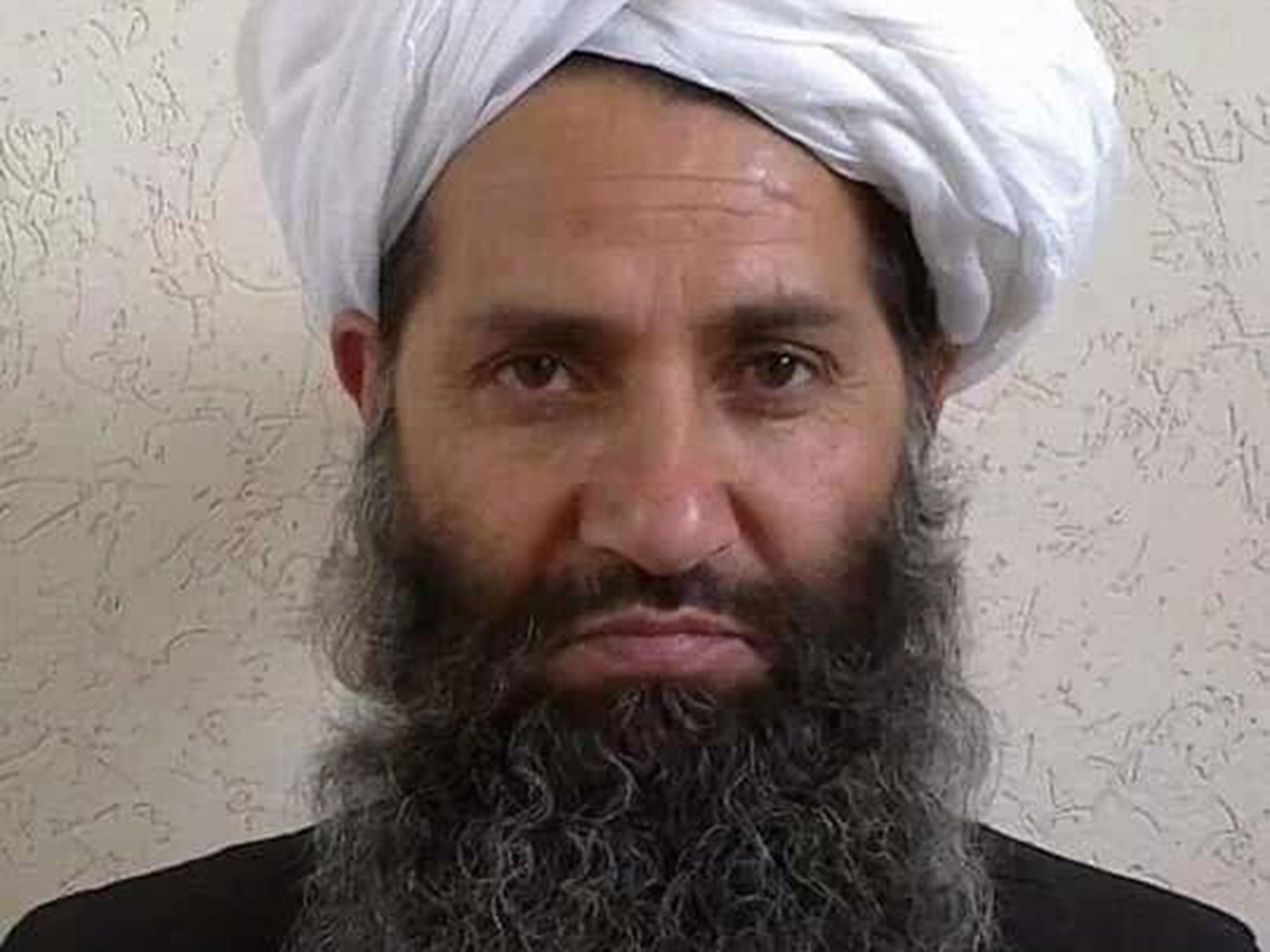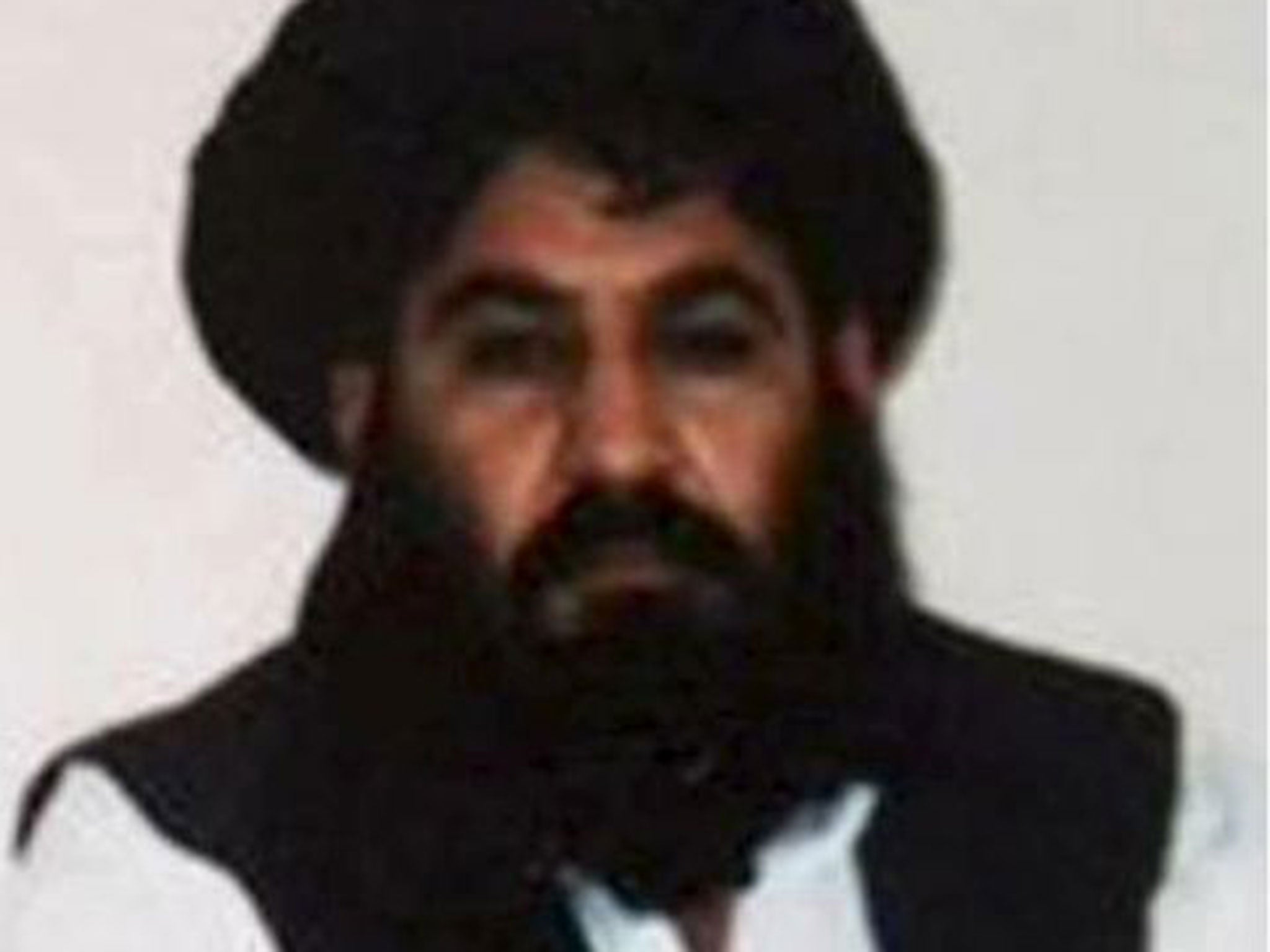Taliban in Afghanistan appoint new leader after death of Mullah Akhtar Mansour in US drone strike
The insurgent group said its new leader is Mullah Haibatullah Akhundzada, one of two of Mansour's deputies

Your support helps us to tell the story
From reproductive rights to climate change to Big Tech, The Independent is on the ground when the story is developing. Whether it's investigating the financials of Elon Musk's pro-Trump PAC or producing our latest documentary, 'The A Word', which shines a light on the American women fighting for reproductive rights, we know how important it is to parse out the facts from the messaging.
At such a critical moment in US history, we need reporters on the ground. Your donation allows us to keep sending journalists to speak to both sides of the story.
The Independent is trusted by Americans across the entire political spectrum. And unlike many other quality news outlets, we choose not to lock Americans out of our reporting and analysis with paywalls. We believe quality journalism should be available to everyone, paid for by those who can afford it.
Your support makes all the difference.The Afghan Taliban has installed a new leader after a US drone strike killed former head Mullah Akhtar Mansour.
He died on Saturday after less than a year leading the fundamentalist group, which is waging an insurgency in Afghanistan amid floundering attempts at government peace talks.
In an official statement, the Taliban named his successor as Mullah Haibatullah Akhundzada, one of two former deputies.

Akhundzada, known for his jihadist teachings, was previously named in propaganda as “the former judiciary chief of the Islamic Emirate and religious scholar”.
An official Taliban account posted a photograph of its new leader, informally known as Mullah Haibatullah, on Twitter showing him with a white turban and a long, greying beard.
Its announcement on Tuesday followed a meeting of the Taliban’s shura leadership council, following days of speculation after leaders failed to confirm Mansour’s death.
“All the shura members have pledged allegiance to Sheikh Haibatullah in a safe place in Afghanistan,” the statement said.
“All people are required to obey the new Emir-al-Momineen (commander of the faithful).”
The missive called on all Muslims to mourn Mansour for three days and attempted to calm any qualms among followers by calling for unity and obedience to the new leader.
Akhundzada, from Kandahar, is believed to be around 60 years of age and a member of the powerful Noorzai tribe. He was a close aide to the Taliban’s founder Mullah Mohammad Omar.
Akhundzada is known for issuing public statements justifying the existence of the Taliban, its war against the Afghan government and vowing revenge for the presence of foreign troops in Afghanistan.
Sirajuddin Haqqani, the head of a feared network blamed for many deadly bomb attacks in Kabul in recent years, and Mullah Mohammad Yaqoob, Omar’s son, will serve as his deputies.
The “Islamic Emirate of Afghanistan” made its announcement after a suicide bomber attacked a minibus carrying court employees in Kabul, killing at least 10 people.
There have been continued warnings of the Taliban’s resurgence over the past year, as retained control over large areas of the country, gathering strength since the withdrawal of foreign forces in 2014.
Its ranks in Afghanistan have been swelled by militants dislodged from the neighbouring Pakistani province of Waziristan by counter-terror operations by government forces.
Attempts by Isis to gain influence and supporters in the country have sparked a strengthening of ties between the Taliban and al-Qaeda, as they seek to counter the “Khorasan Province” branch.
Insurgents have been fighting to overthrow the Kabul government since 2001, when their own Islamist regime was overthrown by the US invasion.
The Ministry of Defence announced in December that British troops were being sent back to Helmand to provide an “advisory role” for local forces, while the US has upped its drone campaign against militants.
The strike against Mansour, which hit his car in Pakistan, was believed to be the first time for a Taliban leader to be killed in such a way in the country.
Ash Carter, the US Defence Secretary, said the strike was part of efforts to protect American troops, Nato forces, Afghan military personnel and civilians.
“Removing Mansour from the battlefield eliminates one roadblock to peace in Afghanistan,” he added.
Josh Earnest, the White House press secretary, said the US had “removed the leader of an organisation that has continued to plot against and unleash attacks on American and Coalition forces, to wage war against the Afghan people, and align itself with extremist groups like al-Qaeda”.
Mansour had refused to participate in peace talks with the Afghan government, intensifying fighting since he officially took control in July after Omar’s death, and his successor is expected to follow his example.
The US is among the countries calling for the Taliban to join negotiations, while the Afghan President's office issued a stark warning following Akhundzada's accession.
“Taliban groups have yet another opportunity to end and renounce violence, lay down their arms, and resume normal and peaceful life,” a spokesperson said.
“Otherwise they will face the same fate as their leadership.”
Pakistan and China have also been trying to get militants to the negotiating table to end a conflict that has killed thousands of civilians and security personnel, caused many to flee Afghanistan and left the country increasingly unstable.
Join our commenting forum
Join thought-provoking conversations, follow other Independent readers and see their replies
Comments